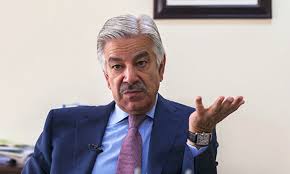Pakistan’s Defence Minister Khawaja Asif has launched a scathing attack on the country’s top bureaucracy, claiming that more than half of senior government officials have purchased properties in Portugal and are actively seeking citizenship through these investments. The allegation, made during a public statement, has sent shockwaves through political and administrative circles, as it raises serious questions about the unchecked accumulation of wealth by those in the highest tiers of civil service.
According to Khawaja Asif, these are not mid-level administrators but influential bureaucrats holding key decision-making positions who have, over the years, exploited their authority to accumulate massive financial resources. Rather than investing in Pakistan’s development or retaining their assets domestically, they have allegedly diverted funds abroad specifically to Portugal’s real estate market, which offers citizenship pathways to foreign investors.
The Defence Minister highlighted that these bureaucrats are quietly preparing for a luxurious post-retirement life in Europe, leaving behind the very system they are entrusted to serve. He alleged that some officials have amassed wealth so vast that extravagant displays such as receiving billions of rupees in “salami” or wedding gifts have become part of their personal narratives. This, he suggested, is a direct result of entrenched corruption, systemic loopholes, and the absence of robust financial accountability mechanisms for civil servants.
Khawaja Asif drew a sharp comparison between bureaucrats and politicians, arguing that elected officials operate under constant public scrutiny, face regular elections, and must disclose their assets. Politicians, he said, cannot easily hide abroad or invest in foreign properties without attracting media and legal attention. Bureaucrats, on the other hand, enjoy career-long anonymity, permanent positions, and minimal accountability, enabling them to accumulate wealth without the same level of oversight or transparency.
He criticized this imbalance in Pakistan’s accountability system, describing it as a key factor in the erosion of public trust. According to him, bureaucrats have historically been able to shield themselves from serious investigations while continuing to wield immense influence over policy, procurement, and administrative decisions.
The Defence Minister’s remarks have sparked a wave of public debate, with citizens, analysts, and civil society organizations calling for sweeping reforms. Many are urging the government to:
- Enforce strict asset declaration laws for all senior officials.
- Increase transparency in foreign property ownership.
- Implement regular, independent audits of bureaucratic wealth.
- Introduce reciprocal legal agreements with foreign governments to track and verify overseas investments.
Critics argue that unless decisive action is taken, Pakistan risks losing significant financial resources to foreign economies while its own infrastructure, public services, and economic growth remain underfunded.
Khawaja Asif’s allegations have also reignited the conversation about meritocracy, governance ethics, and the culture of impunity that many believe has long plagued Pakistan’s bureaucratic machinery. Observers note that without meaningful accountability measures, the pattern of wealth flight and foreign investment by public officials will continue, further undermining public confidence in state institutions.
This latest revelation adds to the growing calls for a comprehensive overhaul of Pakistan’s governance model, ensuring that those entrusted with power are held to the highest standards of financial and ethical integrity.



Comments (0)
No comments yet. Be the first to comment!
Leave a Comment